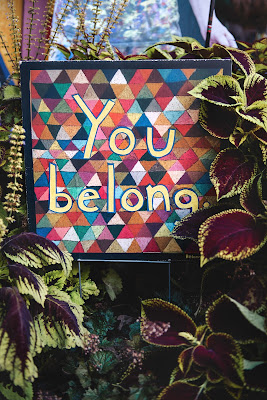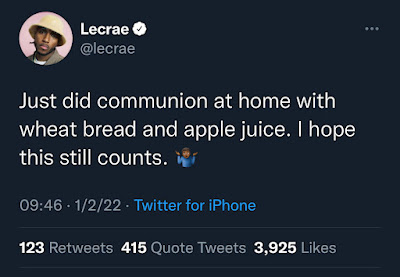Somewhere out there, a debut author is struggling. They can’t believe they were lucky enough to find an agent, let alone get their book published. If you ask them, they’re not really good at writing: their story is weak, their characters are derivative of other works, and their sales numbers are a fluke. They don’t think anyone will ever read a second book from them, especially if readers understood what a hack they are.
Someone out there, a songwriter is making a living playing the music they created. They’re standing on stage in front of an audience that’s singing along. Yet they don’t understand how so many people know their music. There are hundreds of better singers and better guitarists. They wonder how they got so lucky to have fans in attendance and songs on the radio when better musicians can’t even get a gig at a seedy bar. If only people knew how talentless they were, they’d have to abandon the music industry for a normal job.
Somewhere out there is a thespian surprised to be offered a lead role after auditioning for the part. Despite acting in professional theater for decades, receiving dozens of rave reviews, and getting critical praise from local media, they don’t feel like they deserve any of it. They memorize lines and dance routines, wear stage makeup and change costumes, and faithfully attend every rehearsal and performance. Yet somewhere deep inside, they feel like a fraud.
This is what it’s like for people who experience imposter syndrome. No matter how often they’ve proven their skill and competence in their chosen craft, regardless of the level of success they achieve, they feel like an imposter. They believe themselves to be unworthy, undeserving, and incapable of the recognition they receive. They often feel guilty for their successes and deny any complimentary description of their work. Unfortunately, no amount of book, album, or ticket sales can cure imposter syndrome because it’s not an actual diagnosable disorder. It’s a reaction to external stimulation, possibly a symptom of other disorders like depression or autism.
If you feel like you’re an imposter in your occupation, rest assured you’re not alone. If you’ve ever thought to yourself “if they ever found out what I’m really like, my career would be over,” you’re in good company. Those who have publicly admitted their struggles with imposter syndrome include some people who were the best at what they do.
Like poet and civil rights activist Maya Angelou.
Or one of the stars from the Harry Potter franchise, Emma Watson.
Or the prolific writer, Hugo award winner, and delightful weirdo Neil Gaiman.
Or former First Lady Michelle Obama.
Or the 10th (and my personal favorite) Doctor, David Tennant.
Or the enigmatic and brilliant front man of Radiohead, Thom Yorke.
Or one of the celebrated and busiest stars in Hollywood, Tom Hanks.
Or the master of horror, Stephen King.
Those of you suffering with imposter syndrome can also include me in your ranks. As a writer and a DJ, I have severe doubts in my talent. No matter how frequently people tell me they enjoy my writing, I still think I’m skeptical I have what it takes to be successful. Regardless of how many clients leave positive reviews of my gigs, I don’t believe I’m that good as a DJ.
It’s not just my creative pursuits either - I feel like an imposter in almost every aspect of my life. If my kids do something amazing, I don’t understand how I got so lucky to be their dad. If someone compliments how well behaved my kids are, I think they definitely didn’t learn it from me. Almost daily, I think to myself that my kids deserve a better dad. Or my wife deserves a better husband. Or my parents deserve a better son.
I’m a farmer with imposter syndrome too. I frequently walk out to the barn thinking to myself how completely clueless I am about all of it. I’m just a nerd from the suburbs, what the hell do I think I’m doing out here taking care of chickens and goats and horses. Every time something bad happens on the farm, even if it was an act of nature, I blame myself.
I don’t need pity or sympathy. I don’t expect anyone to fix this broken spot in my brain. Rather, I offer kinship. You are not alone.
But there’s more. While I want to offer the raised fist of solidarity, I also come with a challenge. There is another place where I experience imposter syndrome, and it’s a place where I shouldn’t feel this way. While no one can cure the voices in my head telling me I’m a fraud everywhere else, this one location can be resolved: church.
Despite believing in the same God, loving the same Jesus, trusting in the same saving grace, I feel like an imposter every time I step inside a church building – like their beliefs are completely incompatible with mine. Or maybe my beliefs are incapable with theirs.
When I attend church, I sit in the pews (or a chair in a neatly arranged row) and contemplate the possible qualms the people around me might have with me. While the pastor preaches, I wonder “what if they really knew?”
If church folk knew I agree with Black Lives Matter, support athletes who kneel during the National Anthem, and think Christians are failing miserably in racial reconciliation, would they want me in their church?
If church folk knew I think the money they spend on TV monitors, soundboards, websites, video graphics, and bouncy castles could be better spent on feeding the homeless, would I be welcomed?
If they knew I was not only accepting but also affirming of the LGBT community, would they kick me out?
If they knew I disagreed with the way they presented the gospel, or if I think the way they teach biblical principles is incorrect and possibly harmful, would they call me an apostate or heathen?
If they knew I refuse to vote for a Republican, would they excommunicate me?
If they saw me drinking a mojito, or dancing while I’m DJing, or buying tickets for an R-rated movie; if they heard me cuss, or sing along with some of that “devil music,” or promote deconstruction; or if they didn’t hear me proselytize in conversations with my atheist, Muslim, and pagan friends, would they keep their distance or shun me?
I say this can be fixed because I shouldn’t have to feel like an imposter in church. That should be the one place where I belong. Since I don’t feel that way, there are two solutions.
1. I stop attending church.
2. Christians everywhere openly and honestly examine their beliefs and why they believe what they do.
The latter option would require people to change - a process that can be uncomfortable for many – even scary for some. If this were to happen, it would transform the physical spaces where Christians meet, turning them into safe spaces for members and visitors to doubt their doubts and believe their beliefs. It would be a home for those who are wandering, lost, hurting, or broken. Churches should be accepting of where and who we are now while challenging us to grow and improve. Churches should welcome and not condemn sincere questions. Diversity of thought should be invitations to productive discussions instead of angry debates.
The first option would be a whole lot easier. As tempting it is, I love God so much that I am moved to care about God’s people, even if they don’t care about me.
So I go. I feel awkward and out of place. Until American evangelicals pull their collective heads out of their collective asses, I will continue feeling like an imposter.
But what’s new? I’ve been an outcast my entire life.





















